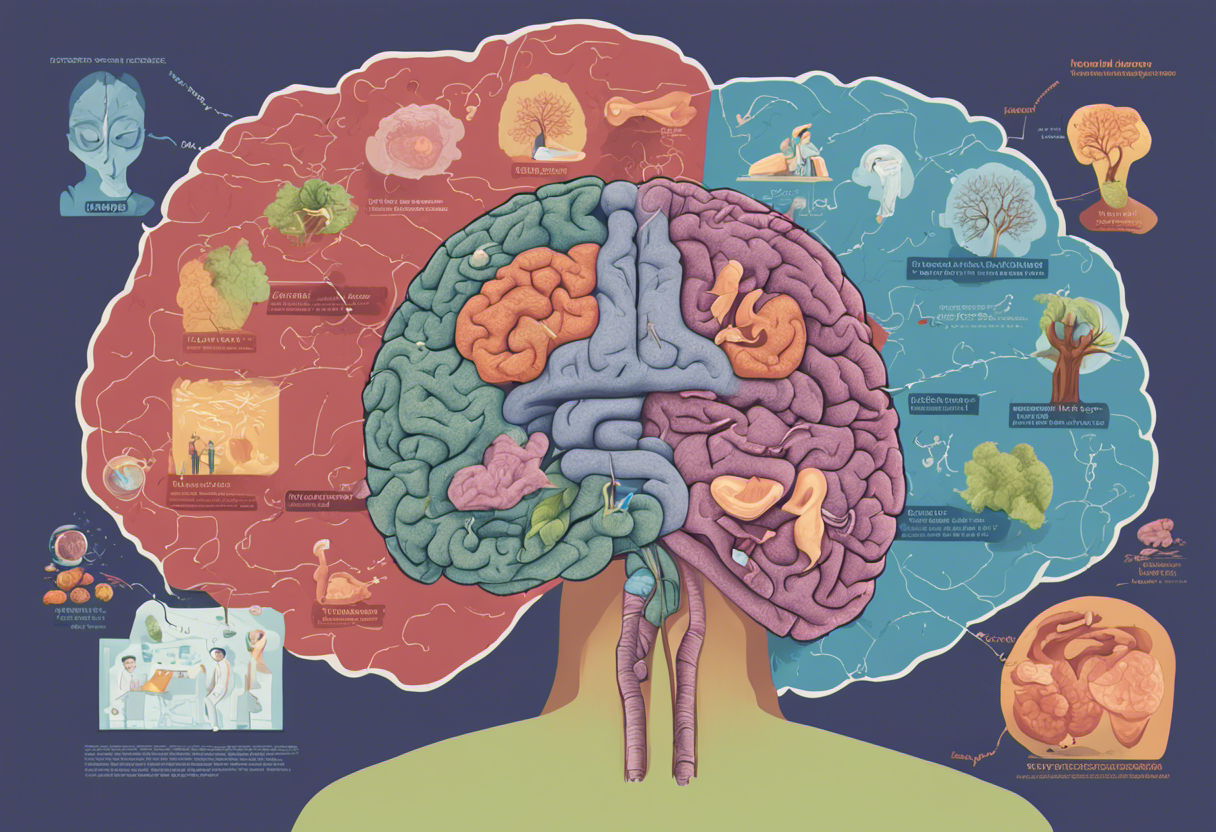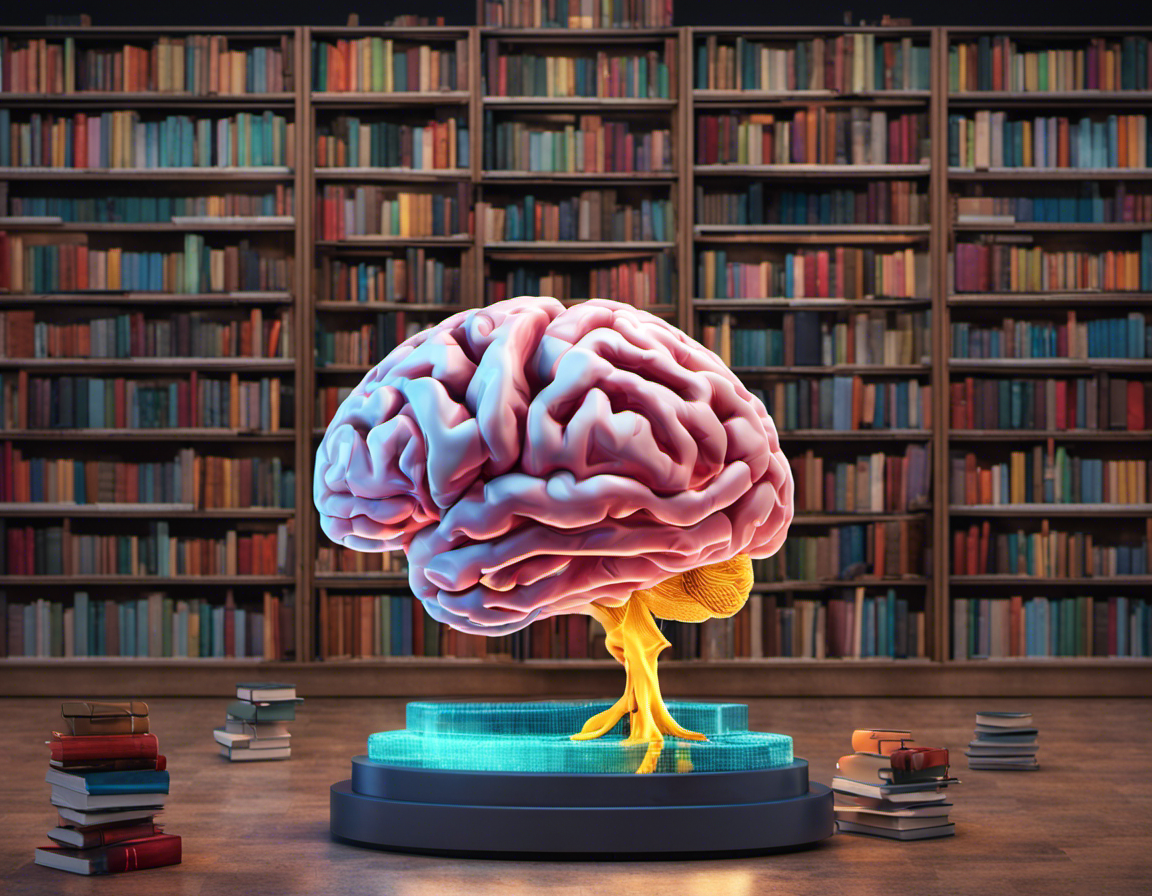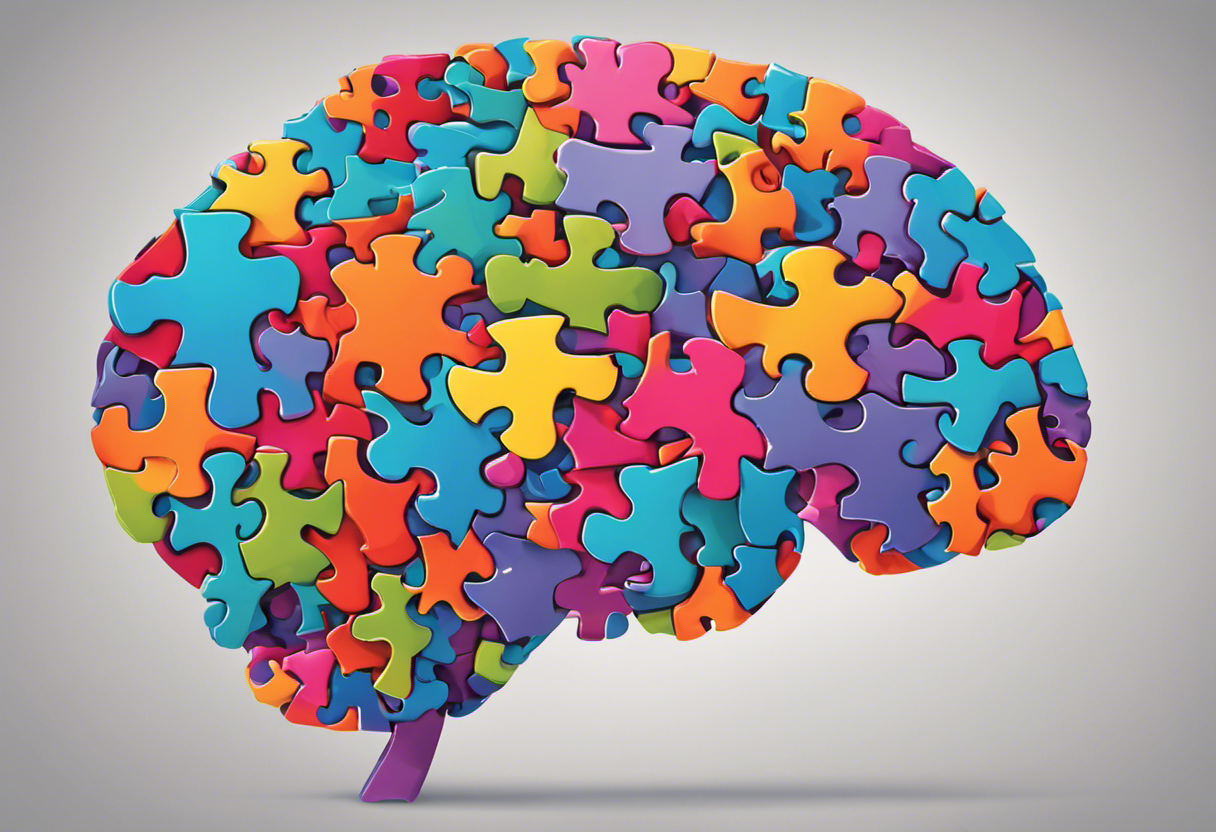Unlocking Your Brain: Understanding and Enhancing Your Memory

Have you ever wondered why you vividly remember specific events while others fade away almost instantly? The mysterious workings of the human brain and its memory capacity have puzzled scientists and laypeople alike for centuries. The phenomenon of memory is not just a cognitive curiosity; it forms the bedrock of our learning abilities, personal growth, and identity. Understanding how our memory functions, the different types of memory, and the factors influencing its efficiency can enhance our academic performance and everyday life experiences.
In this enlightening journey into the neural labyrinth of your brain, we will delve into explaining the process of memory formation from encoding to storage and retrieval. We’ll explore the silent warriors of your memory pathway: the long-term, short-term, sensory, and working memories. We will also unravel how factors like stress, sleep, and nutrition impact your memory.
As a bonus, we’ll share scientific strategies to boost your cognitive toolkit with effective memory-enhancing techniques. Additionally, we’ll venture into some severe territory by discussing prevalent memory disorders like Alzheimer’s disease and amnesia. This comprehensive guide will enlighten you about your mind’s unique way of archiving life’s experiences and arm you with strategies to harness its maximum potential. So buckle in as we embark on this fascinating exploration of one of evolution’s most remarkable creations – your memory!
Understanding the Basics of Memory
Memory is a complex mental process incorporating various stages, including encoding, storing, and retrieving information. This cognitive faculty plays a critical role in our various aspects of life.
The Role of Memory in Learning
The primary function of memory in learning is to retain information received, enabling individuals to learn concepts, skills, and experiences over time. As we often say, you ‘learn by heart,’ highlighting how memory is an integral part of different learning processes.
How Memory Works in the Human Brain
The operation of memory in the human brain involves intricate systems and processes. Information detected by our senses must first be converted into a form that the brain can comprehend and use, called encoding. Following this, the encoded information is then stored for later access, known as storage. Subsequently, the retrieval process commences when we need to recall or use any stored information. It’s worth noting that these processes work simultaneously and are not necessarily linear.
Understanding Memory: Different Types of Memory
Our memory system is not a single monolithic entity but consists of multiple types that have unique characteristics and functions. Undoubtedly, understanding these types offers a holistic view of this complex cognitive faculty.
Long-term Memory and Short-term Memory
Long-term memory (LTM) and short-term memory (STM), as the names suggest, differ principally in terms of the duration for which they retain information. Short-term memory holds a small amount of information for a brief period (approximately 20 -30 seconds), acting like a mental notepad. Meanwhile, long-term memory caters to the storage of larger data quantities for more extended periods – ranging from hours or days to years or even decades.
While LTM encompasses knowledge and experiences accumulated over your lifetime, STM primarily focuses on information actively in use at any given moment. For instance, remember a phone number until you dial it, or keep a new friend’s name in mind until you get to know them better. Conversely, long-term memory would include remembering your mother’s birthday or recollecting your high school graduation. Certainly, distinguishing between these different types of memory brings us closer to understanding their individual complexities and values.
Sensory Memory and Working Memory
Touching upon the basic types of memory, sensory and working memory are the building blocks of our cognitive functions. Sensory memory retains impressions of sensory information after the stimulus has ended. This type of memory usually lasts for a short period. Still, it plays a crucial role in deciding which information is deemed significant enough to be transferred to the other memory stages. Utilizing these snippets of information, we proceed to work memory, a more active form of processing. Considered the brain’s ‘posting system,’ it allows us to hold and manipulate information over short periods, which is critical for language comprehension, learning, and reasoning abilities.
The Process of Memory Formation
To gain a better understanding of memory, one must understand its formation process. This fascinating and complex operation involves all the brain’s regions and requires in-depth exploration. The formation process begins with perception and ends with retrieval, closely associating this process with experiences and learning.
Encoding, Storage, and Retrieval
Peeling back the layers of the memory formation process, we find three essential steps: encoding, storage, and retrieval. Encoding translates received information into a form that the brain can comprehend and use; it’s a vital foundation for memory creation. Next is storage- the consolidation of encoded information for future access. Lastly is retrieval, aptly named as it represents the brain’s ability to recall stored memories when needed.
Factors Affecting Memory
While our brains are magnificent machines capable of storing vast amounts of information, various factors can impede or accelerate their operation. These factors can range from external aspects, such as lifestyle choices, to internal influences, like physiological changes.
Stress, Sleep, and Nutrition
Three noteworthy factors affecting memory are stress levels, sleep quality, and nutritional intake. High-stress levels can lead to memory problems due to increased cortisol production in the body. Adequate sleep is essential for proper memory functioning because memory consolidation occurs during deep sleep stages. Nutrition also deserves attention, as certain nutrients are known to support brain health and cognitive abilities.
Strategies to Improve Memory
Although memory functions may alter due to various factors, it is encouraging to know that we can utilize several strategies to enhance our memory capabilities.
Techniques for Memory Enhancement & Retention
Exploring techniques for memory enhancement, we harness approaches ranging from simple lifestyle improvements to psychological tactics like mnemonic devices and the method of loci. Regular physical exercise and a balanced diet can also bring about considerable changes in one’s ability to retain and recall information.
Memory Disorders
Understandably, deviations from normal memory functioning can lead to a range of memory disorders. These disorders significantly impair an individual’s life quality and may necessitate medical intervention or special care.
Alzheimer’s Disease and Amnesia
Among many disorders linked to memory, Alzheimer’s disease and amnesia are particularly distressing. Alzheimer’s disease leads to progressive mental deterioration and majorly affects older individuals. On the other hand, amnesia is characterized by partial or complete loss of memory, often caused by brain damage or severe emotional trauma. Studying these conditions illuminates our understanding of memory’s crucial role in our lives.
Conclusion
In today’s fast-paced world, memory’s integral role in powering our daily activities, influencing our experiences, and shaping our personas cannot be overstated. This exploration of the complex labyrinth of our memory structure, from the quick recall of short-term memory to the vast reservoirs of long-term memory, emphasizes its variety and dynamism. As we’ve discussed, sensory and working memory are crucial stepping stones in processing and retaining information.
The fascinating journey of memory – from encoding storage to eventual retrieval – sheds light on this mind-boggling mental mechanism. It’s also essential to remember that various factors, from sleep patterns to our diet, can significantly impact memory function. Strategizing around these factors and employing techniques such as mnemonic devices can effectively improve memory performance.
However, memory isn’t immune to the eroding touch of diseases like Alzheimer’s or the disruptive impact of conditions such as amnesia. These disorders underline the critical importance of cherishing and preserving our precious ability to remember.
With this knowledge about your memory works, consider taking a moment today to evaluate your lifestyle choices and determine what changes you could make to enhance your brain health and memory. We are only scratching the surface of this enthralling subject—we encourage you to continue deepening your understanding of your memory’s unique structure and functionality.




Comments